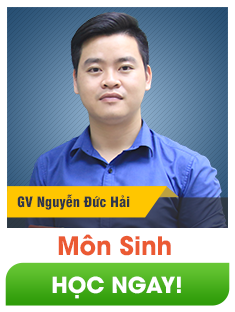Grammar - Unit 9: Protecting the Environment - SBT Tiếng Anh 10 Global Success1. Choose the best answers to complete the sentences.2. Complete the following sentences with the words / phrases from the box. 3. Identify the mistake in each of these sentences. GÓP Ý HAY - NHẬN NGAY QUÀ CHẤT Gửi góp ý cho HocTot.Nam.Name.Vn và nhận về những phần quà hấp dẫn
Lựa chọn câu để xem lời giải nhanh hơn
Bài 1 1. Choose the best answers to complete the sentences. (Chọn các câu trả lời đúng nhất để hoàn thành các câu.) 1. She told me that she ________ to me the Sunday before. A. wrote B. has written C. was writing D. had written 2. Nam wanted to know what time ________. A. does the movie begin B. did the movie begin C. the movie begins D. the movie began 3. They said that they had driven through the desert ________. A. the previous day B. yesterday C. today D. the following day 4. She ________ me whether I liked classical music or not. A. asked B. told C. said D. suggested 5. The man asked the boys ________. A. why did they fight B. why they were fighting C. why they fight D. why were they fighting 6. I asked him whose bike ________ the previous day. A. he had borrowed B. had he borrowed C. did he borrow D. he would borrow 7. Helen asked me ________ I would go to the cinema the following weekend. A. if B. where C. when D. what 8. My father said that he ________ attend a workshop on climate change the following week. A. would B. does C. did D. does Phương pháp giải: - Câu trực tiếp (Direct Speech) được sử dụng tường thuật nguyên văn lời của người nói. Trong văn viết, câu trực tiếp thường được để trong dấu ngoặc kép. Ví dụ: - She says: “I am the best.” (Cô ấy nói: “Tôi là đỉnh nhất”) - My friend said: “I went out last night.” (Bạn tôi nói: “Tối hôm qua tớ đi chơi.”) - Câu gián tiếp (Reported Speech) được sử dụng để thuật lại ý chính mà người khác đã nói. Vì không thuật lại nguyên văn nên câu gián tiếp thường đứng sau “that” thay vì được bỏ vào ngoặc kép. Ví dụ: She said that he was fine. (Cô ấy nói cô ấy ổn.) My mother said that she was cleaning the house. (Mẹ tôi nói bà ấy đang dọn nhà.) - Khi dùng câu tường thuật, chúng ta thay đổi đại từ nhân xưng, thì của động từ, và các trạng từ chỉ thời gian. Ví dụ: “I will fly to Ho Chi Minh tomorrow”, Nam said. => Nam said he would fly to Ho Chi Minh the following day. I => he will fly => would fly tomorrow => the following day
- Khi tường thuật câu hỏi, chúng ta thường sử dụng động từ ask và trật từ trong câu giống như câu gián tiếp, và bỏ dấu ? đi. * Câu hỏi Wh- (câu hỏi có từ để hỏi): VD: “Where do you live? => He asked me where I lived. * Câu hỏi Yes/No: VD: “Do you like the book?” => He asked me if I liked the book. Lời giải chi tiết:
1. She told me that she had written to me the Sunday before. (Cô ấy nói với tôi rằng cô ấy đã viết thư cho tôi vào Chủ nhật trước đó.) Giải thích: Trong câu có động từ “told” (nói) ở thì quá khứ đơn. Vì vậy, trong câu gián tiếp ta phải lùi thì quá khứ đơn => quá khứ hoàn thành. 2. Nam wanted to know what time the movie began. (Nam muốn biết bộ phim bắt đầu lúc mấy giờ.) Giải thích: Cấu trúc câu gián tiếp dạng câu hỏi Wh-questions: S + wanted to know + Clause (Wh-word + S + V(thì)) (Lưu ý: Không đảo ngữ trong vế này). 3.They said that they had driven through the desert the previous day. (Họ nói rằng họ đã lái xe qua sa mạc vào ngày hôm trước.) Giải thích: Trong câu gián tiếp, ta phải thay đổi trạng từ chỉ thời gian: yesterday => The day before / the previous day. 4. She asked me whether I liked classical music or not. (Cô ấy hỏi tôi liệu tôi có thích nhạc cổ điển hay không.) 5. The man asked the boys why they were fighting. (Người đàn ông hỏi các chàng trai tại sao họ lại đánh nhau.) Giải thích: Cấu trúc câu gián tiếp dạng câu hỏi Wh-questions: S + wanted to know + wh-word + S + V(lùi thì) (Lưu ý: Không đảo ngữ trong vế này). 6. I asked him whose bike he had borrowed the previous day. (Tôi hỏi anh ấy chiếc xe đạp mà anh ấy đã mượn vào ngày hôm trước.) Giải thích: Trong câu có động từ “asked” (nói) ở thì quá khứ đơn. Vì vậy, trong câu gián tiếp ta phải lùi thì quá khứ đơn => quá khứ hoàn thành. 7. Helen asked me if I would go to the cinema the following weekend. (Helen hỏi tôi liệu cuối tuần sau tôi có đi xem phim không.) Giải thích: Cấu trúc câu gián tiếp với câu hỏi Yes / No: S+asked/wanted to know/ wondered to know +if/ whether+S+V 8. My father said that he would attend a workshop on climate change the following week. (Cha tôi nói rằng ông sẽ tham dự một hội thảo về biến đổi khí hậu vào tuần sau.) Giải thích: Trong câu có động từ “said” (nói) ở thì quá khứ đơn. Vì vậy, trong câu gián tiếp ta phải lùi thì tương lai đơn => tương lai đơn trong quá khứ (would). Bài 2 2. Complete the following sentences with the words / phrases from the box. (Hoàn thành các câu sau với các từ / cụm từ trong hộp.)
1. The student wanted to know ________ time he had to complete the assignment. 2. He asked ________ they could do to protect the animals that are in danger. 3. He told me that he would take part in the clean-up activities ________. 4. What are you going to do ________ ?' she asked. 5. She asked ________ I liked the animals. 6. My brother asked ________ the environmentalists came from. 7. “Did you visit the animal farm ________?" he asked. 8. She said she had finished an essay on the water pollution ________. Lời giải chi tiết:
1. The student wanted to know how much time he had to complete the assignment. (Học sinh muốn biết anh ta có bao nhiêu thời gian để hoàn thành bài tập.) 2. He asked what they could do to protect the animals that are in danger. (Anh ấy hỏi họ có thể làm gì để bảo vệ các loài động vật đang gặp nguy hiểm.) 3. He told me that he would take part in the clean-up activities the following week. (Anh ấy nói với tôi rằng anh ấy sẽ tham gia các hoạt động dọn dẹp vào tuần sau.) 4. “What are you going to do tomorrow ?” she asked. (“Bạn định làm gì vào ngày mai?”cô ấy hỏi.) 5. She asked whether I liked the animals. (Cô ấy hỏi tôi có thích động vật không.) 6. My brother asked where the environmentalists came from. (Anh trai tôi hỏi các nhà bảo vệ môi trường đến từ đâu.) 7. “Did you visit the animal farm yesterday?" he asked. (“Bạn có đến thăm trang trại động vật ngày hôm qua không?” anh ấy hỏi.) 8. She said she had finished an essay on the water pollution the previous day. (Cô ấy nói rằng cô ấy đã hoàn thành một bài luận về ô nhiễm nguồn nước vào ngày hôm trước.) Bài 3 3. Identify the mistake in each of these sentences. (Xác định lỗi sai trong mỗi câu sau.) 1. My teacher said that we will have a test the next day. A B C D 2. Tuan said Ba whether he liked watching movies about the wildlife. A B C D 3. He asked me why I don't go to the party the night before. A B C D 4. “When will your brother leaves Viet Nam for the UK to study?” Phong asked Thu. A B C D 5. “Will you go to the countryside with us the following day?” Lan asked me. A B C D 6. He said that his club will discuss the topic of global warming the following day. A B C D 7. He wanted to know what the training course would finish. A B C D 8. Her mother asked whether she is revising for her final exam. A B C D Lời giải chi tiết:
1. B Khi chuyển từ câu trực tiếp sang gián tiếp, phải lùi thì. Vì vậy, phải sửa will => would. My teacher said that we would have a test the next day. (Giáo viên của tôi nói rằng chúng tôi sẽ có một bài kiểm tra vào ngày hôm sau.) 2. A Cấu trúc câu gián tiếp với câu hỏi nghi vấn Yes / No: S + asked/ wanted to know/ wondered + if/whether + S + V + … Tuan asked Ba whether he liked watching movies about the wildlife. (Tuấn hỏi Ba có thích xem phim về động vật hoang dã không.) 3. C Khi chuyển từ câu trực tiếp sang gián tiếp, phải lùi thì. Vì vậy, phải sửa don’t go => didn’t go. He asked me why I didn't go to the party the night before. (Anh ấy hỏi tôi tại sao tôi không đi dự tiệc vào tối hôm trước.) 4. B Sau “will” động từ ở dạng nguyên thể. “When will your brother leave Viet Nam for the UK to study?” Phong askedThu. (“Khi nào thì anh trai bạn rời Việt Nam sang Vương quốc Anh du học?” Phong hỏi Thu.) 5. C Ở dạng câu trực tiếp, trạng từ chỉ thời gian vẫn giữ nguyên. “Will you go to the countryside with us tomorrow?” Lan asked me. ("Ngày mai bạn sẽ về vùng nông thôn với chúng tôi chứ?" Lan hỏi tôi.) 6. B Khi chuyển từ câu trực tiếp sang gián tiếp, phải lùi thì. Vì vậy, phải sửa will => would. He said that his club would discuss the topic of global warming the following day. (Anh ấy nói rằng câu lạc bộ của anh ấy sẽ thảo luận về chủ đề nóng lên toàn cầu vào ngày hôm sau.) 7. B Cấu trúc câu gián tiếp với câu hỏi nghi vấn wh: S + asked/ wanted to know/ wondered + when + S + V + … what: cái gì when: khi nào He wanted to know when the training course would finish. (Anh ấy muốn biết khi nào khóa đào tạo có kết thúc.) 8. C Khi chuyển từ câu trực tiếp sang gián tiếp, phải lùi thì. Vì vậy, phải lùi thì hiện tại tiếp diễn => quá khứ tiếp diễn: is revising => was revising Her mother asked whether she was revising for her final exam. (Mẹ cô ấy hỏi liệu cô ấy có đang ôn tập cho kỳ thi cuối kỳ của mình không.)
>> Học trực tuyến Lớp 10 cùng thầy cô giáo giỏi tại Tuyensinh247.com, (Xem ngay) Cam kết giúp học sinh học tốt, bứt phá điểm 9,10 chỉ sau 3 tháng, làm quen kiến thức, định hướng luyện thi TN THPT, ĐGNL, ĐGTD ngay từ lớp 10
|





















